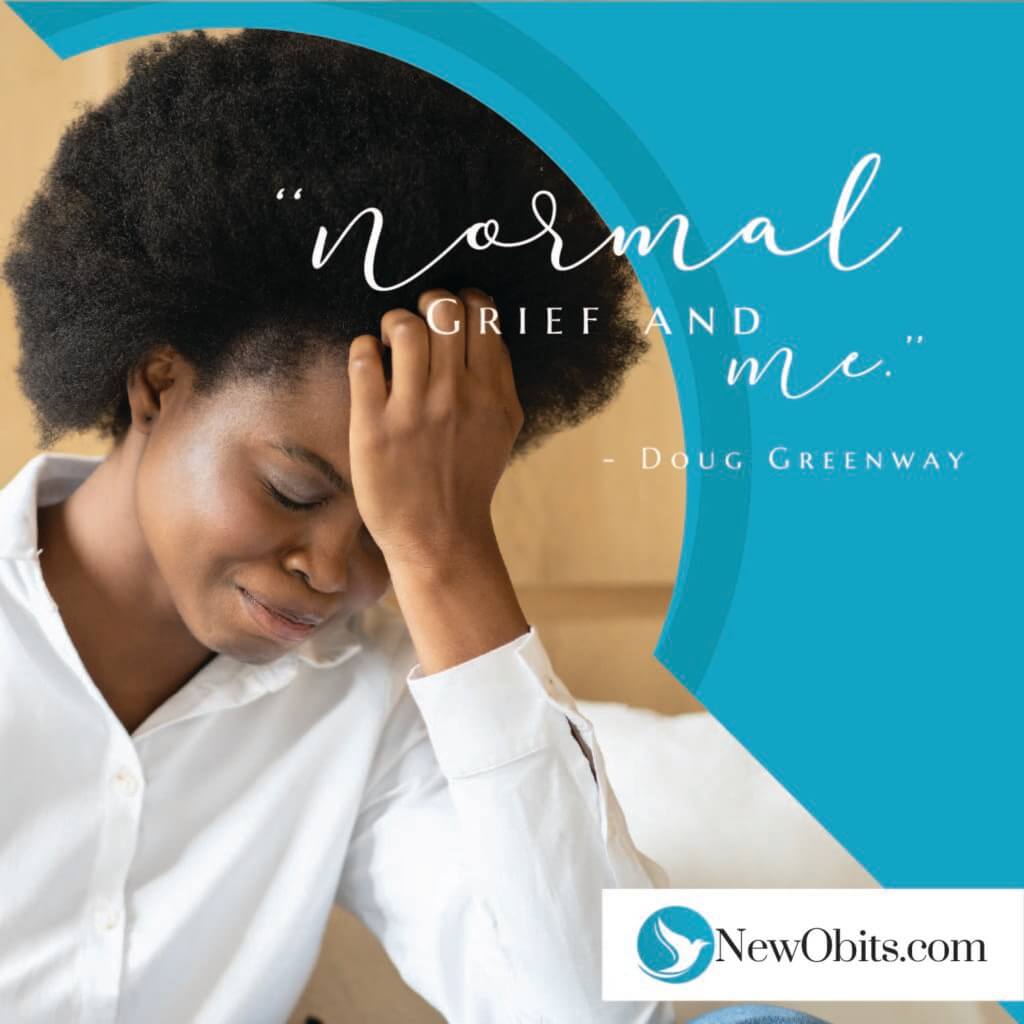
The term “normal grief” is sometimes referred to as “uncomplicated grief” and is further divided into clinical normal grief (as defined by the experts) and statistically normal grief (which refers to the frequency of which a behavior is found among a given random population in some region.)
In good NE MS English, “clinically normal grief” is pronounced normal by the experts. “Statistically normal grief” is pronounced as such by the researchers and statisticians. The more frequent the behavior, the more it is defined as “normal.”
Of course, there is “abnormal grief” also. It would be helpful if we, in the midst of fighting either sort of grieving, knew what was characteristic of each.
First of all, “normal grief” is characterized by sadness, and usually tears. Anger is frequently expressed after a significant loss. People blame the physician, funeral director, family members and often God. One of the most dangerous reactions is turning that anger inward toward oneself. Turned outward, this kind of anger is physically destructive and turned inward, this anger is depression just waiting to blossom forth, and at the extreme — might result in suicide.
Guilt and self-reproach show up quickly and often, when death comes calling someone we love. Guilt over not finding a better doctor or taking the loved one to the hospital sooner, and the like.
Anxiety in the survivor can range from a light sense of insecurity to a full-blown panic attack. Issues of insecurity must be dealt with one issue at a time. Frequently, the major anxiety comes when the survivors wonder how they are going to be able to take care of themselves now that _____ is gone. Secondly, we tend to become conscious of our own mortality by the death of a loved one.
Characteristics of normal grief that are a little easier to spot include loneliness, fatigue, helplessness, shock, relief, and numbness.
Feelings such as these that exist for abnormally long periods of time may be warning signs that further action is needed. Along with these feelings often comes stomach issues, tightness in the chest, over-sensitivity to noise, shortness of breath, weakness in the muscles, lack of energy and dry mouth. Many times, these symptoms will motivate a survivor to end up in the doctor’s office for a checkup.
We all want to be normal or even excel in our mental, physical, spiritual and emotional health, but that is not always the case. My wife and I have made an agreement that when we see the other acting in an abnormal way over time, that observant partner has the OK to request that we the observed partner GO to the counselor, physician or whomever is a specialist. And we have agreed ahead of time to go. (In case you wondered, one time in fourteen years of marriage she has asked me to see a counselor — and I went.) I wouldn’t go to a counselor who wouldn’t go to counseling, but that is a story for another time!

Doug Greenway
These blog articles are written by the retired minister and former educator and counselor, Doug Greenway. He'd love to hear from you with your comments, questions, or suggestions for future topics. You may reach Doug at doug_greenway@yahoo.com.
